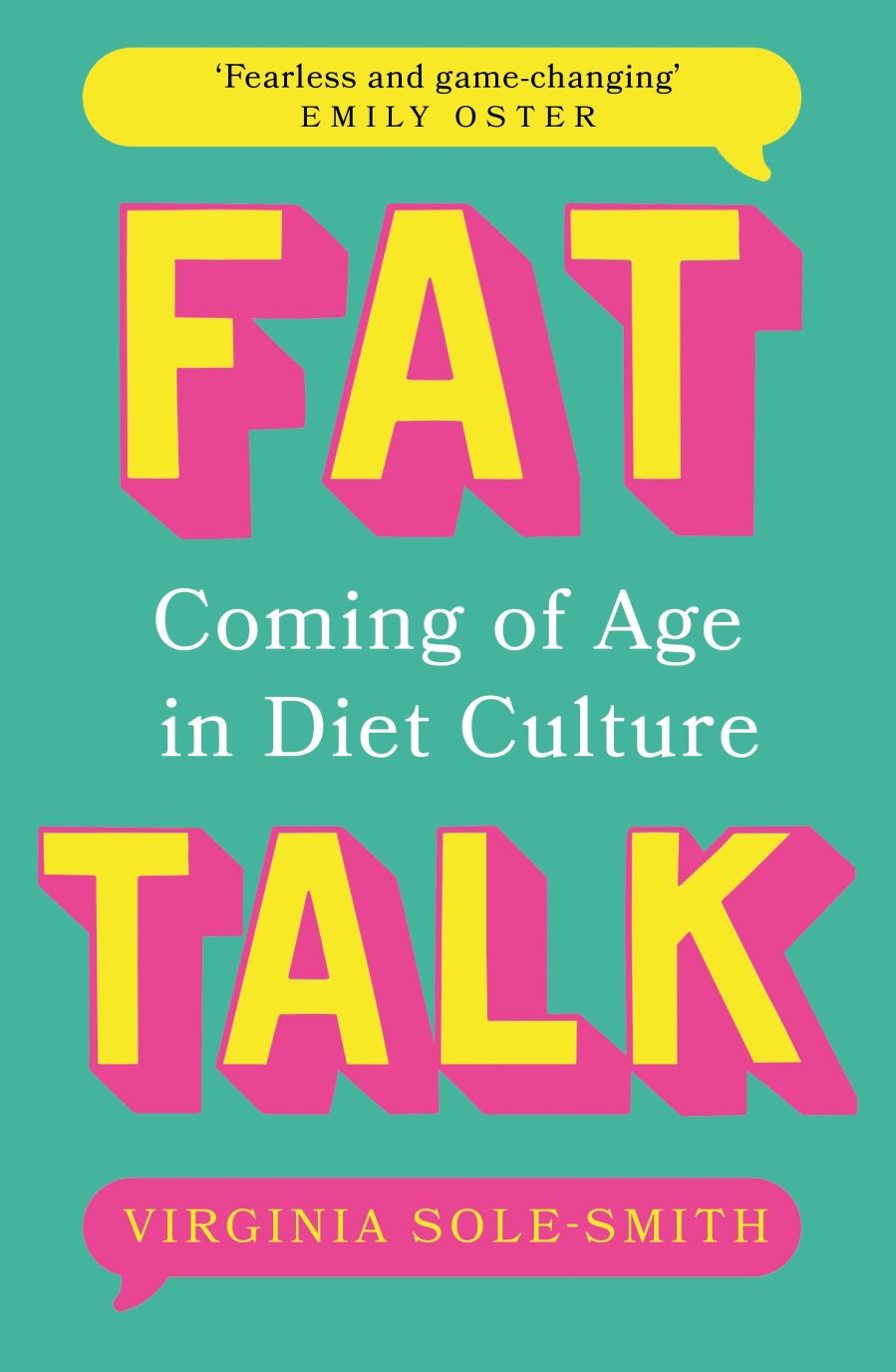Fat Talk, Virginia Sole-Smith

April 2023
There’s so much more to say about this brave and sensitively reported book than I could in this feature on Virginia Sole-Smith’s book Fat Talk for The i Paper.
Months later, it has left me returning to my own fatphobia repeatedly. I constantly examine the tension between my knowing we need to fight fatphobia to improve rights and healthcare for fat people, while struggling to accept that thinness is not the only sensible aspiration in life, given it makes everything easier, doesn’t it?
I also struggled, and have talked in depth with many friends, about the rupture Sole-Smith claims between obesity and illness and death. She says there is correlation but the causation is simply not there, and that we’re failing to find the real causes of modern illness (UPF? Microplastics? Chemical environments?) by focusing exclusively on fatness.
Here’s an extract from the feature:
Is there a right age to start talking to kids about dieting? The truth is, I don’t want Percy to think about her weight at all, ever. Whatever the number is. But I know that this is impossible.
“Recent research suggests that kids as young as three years old already associate fat bodies with negative traits,” writes journalist Virginia Sole-Smith in her book Fat Talk: Coming of Age in Diet Culture (Bonnier Books, £16.99), published this week. It’s full of advice on how to approach “the talk” in all sorts of contexts, from with your child or teen to with teachers, doctors, friends and partners.
We need to talk about fatness `
Fat Talk isn’t an easy read. Sole-Smith has spent years researching anti-fat bias, as a journalist and via her podcast and newsletter Burnt Toast, and repeatedly calls out parents - without blaming them - who say they want their children to be healthy and to love their bodies, when really that means they don’t want fat children.
“We see staying thin, especially if you do it via a plant-based, locally sourced, whole-foods diet, as the same kind of virtuous, socially responsible act as limiting your child’s screen time or saving for college,” says Sole-Smith. Guilty as charged.
She also says we should get used to using the word “fat”.
“That may feel scary, especially if the word has been weaponised against you in the past,” she says.
“We can’t edit or rewrite every cultural message our children get. Instead, we must teach them how to recognise and reject these messages - even when they hear them from us.
“We need to redefine fat talk. To stop making fatness the worst-case scenario and start reclaiming it as a perfectly good way to have a body.”